Hawthorn is a thorny bush with spring flowers and autumn fruit, present across French territory, often in bocage hedgerows. Its fruits, flowers and leaves have been used since antiquity for their many health benefits. It is above all the flowers that are used in herbal medicine. Hawthorn, scientifically known as Crataegus, is famed for its beneficial effects on heart, notably as a cardiac regulator, but also on stress and insomnia, among others. It is mainly used as an infusion of dried flowering tops. Let us explore together the different hawthorn varieties to use, the medicinal virtues of this plant, how to prepare a hawthorn infusion from a spring harvest of flowers, the recommended dosage and possible contraindications to consider.
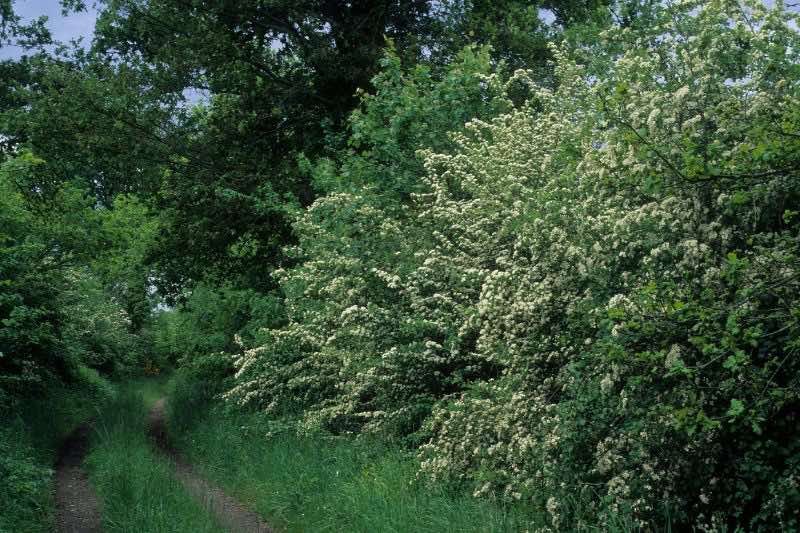
Which hawthorns to use?
Hawthorn occurs in several species, but the most commonly used in herbal medicine are Crataegus monogyna and Crataegus laevigata. Hawthorn flowers are generally preferred for making the infusion because of their medicinal properties. Make sure to use good-quality hawthorn flowers, preferably organic, or wild-harvested without chemicals, to maximise the benefits of your infusion.
What are its virtues?
Hawthorn is renowned for its many virtues in herbal medicine. It is particularly known for its beneficial effects on heart. It can help regulate blood pressure, strengthen heart muscle and improve circulation. In addition, it has calming properties that help reduce stress and anxiety. Hawthorn infusion is also prized for its beneficial effects on sleep. It can help soothe sleep disorders such as insomnia and promote restorative sleep. Its sedative properties help calm nervous system, thus facilitating deeper, more restorative sleep. Due to its medicinal virtues, hawthorn is a well-known plant often recommended in cases of hypertension. Hawthorn is a versatile natural remedy. It acts as a mild vasodilator, meaning it can help widen blood vessels, thereby easing blood flow and lowering blood pressure. It is therefore beneficial for people suffering from mild to moderate hypertension.
How to make an hawthorn infusion?
Harvest and drying
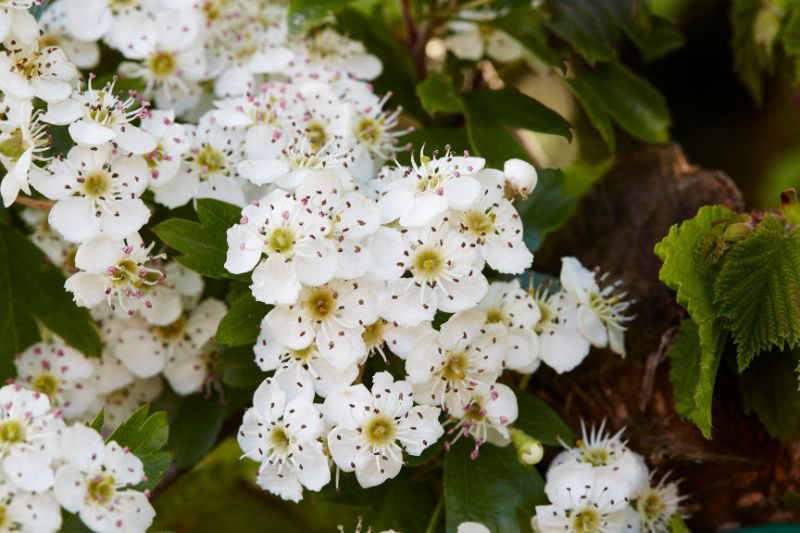
You can buy dried hawthorn flowering tops on the market, preferably organic, but you can also harvest them yourself. In May–June, as soon as flower buds begin to whiten, that is the moment for harvest. That is, when there are still white buds and a few open flowers. The harvesting window is short, usually less than a week. Afterwards, flowers give off an ammonia-like smell. If possible, harvest in the morning of a dry sunny day, when properties of the flowers are most concentrated.
Hawthorn is fairly easy to dry. Choose the warmest room in your home to place flowers in a crate, on a clean cloth, without overlapping. They should dry quickly, in 24 to 48 hours. Then transfer them to an airtight glass jar, store in a dry place away from light and humidity and ideally keep for up to 1 year.
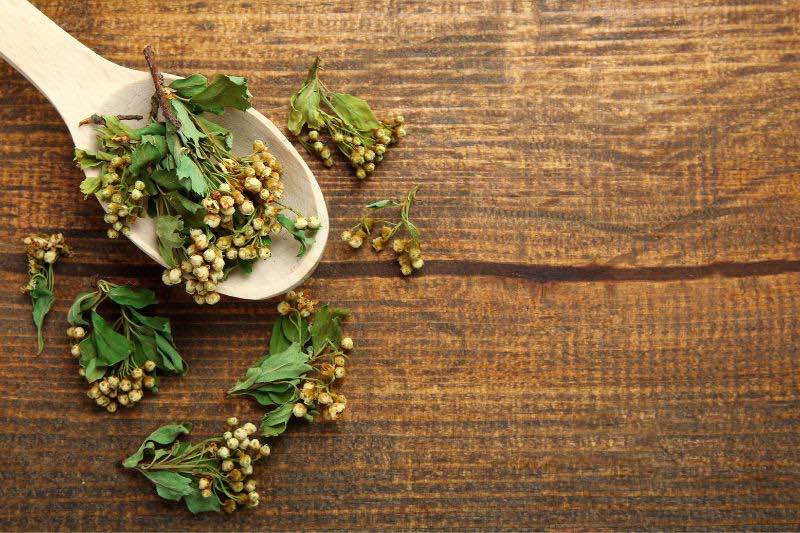
Preparation
To prepare a delicious hawthorn infusion, follow these simple steps:
- In a cup, pour hot water at 85–90°C, just below boiling point (about 250 ml).
- Add one tablespoon of dried hawthorn flowers to the hot water.
- Cover the cup and steep for approximately 10 minutes to allow hawthorn's beneficial properties to release into the water.
- Strain the infusion to remove hawthorn flowers.
- You may add honey or lemon to improve taste, if desired.
- Enjoy infusion hot, preferably.
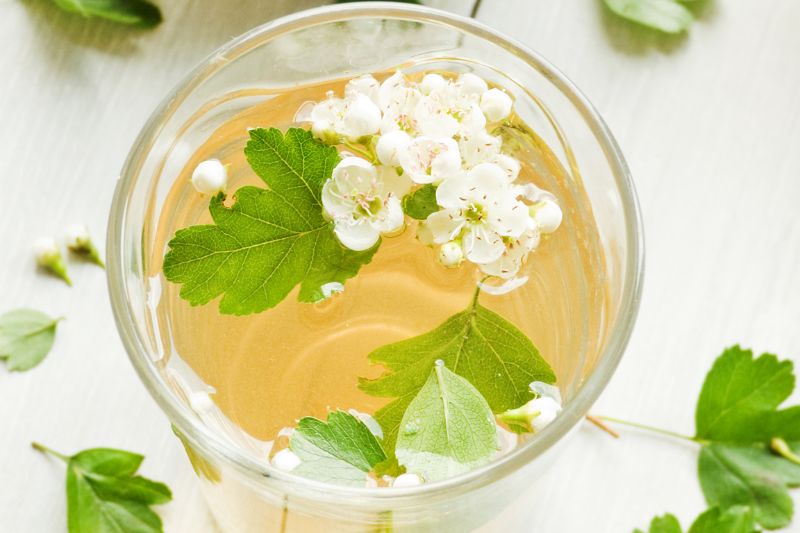
Dosage and possible contraindications
To benefit from hawthorn's virtues, it is recommended to drink up to 3 cups of hawthorn infusion per day. However, it is important to note that each person reacts differently to medicinal plants. It is therefore preferable to start with one cup per day and observe how your body reacts before increasing consumption.
Although hawthorn is considered safe for most people, there are some contraindications to consider. People on cardiac medication should consult their doctor before consuming hawthorn, as it can interact with certain drugs. In addition, pregnant or breastfeeding women should avoid hawthorn consumption without consulting a healthcare professional.
Hawthorn infusion is a soothing, healthful beverage, renowned for its virtues in herbal medicine. By using the right hawthorn flowers, respecting the recommended dosage and taking possible contraindications into account, you can fully enjoy benefits of this medicinal plant for heart, stress and sleep.






























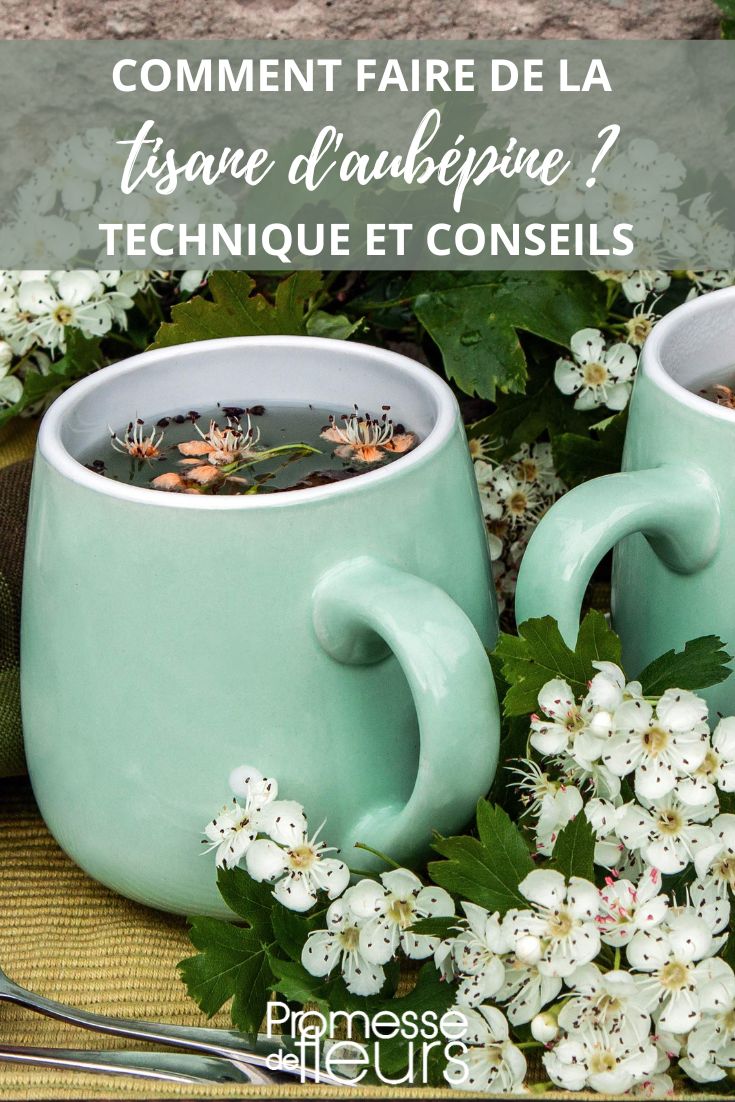
Comments